
James Robert Wills was an American Western swing musician, songwriter, and bandleader. Considered by music authorities as the founder of Western swing, he was known widely as the King of Western Swing. He was also noted for punctuating his music with his trademark "ah-haa" calls.
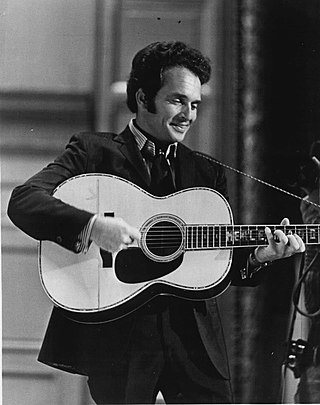
Merle Ronald Haggard was an American country music singer, songwriter, guitarist, and fiddler.
Billie "Tiny" Moore was an American Western swing musician who played the electric mandolin and fiddle with Bob Wills and the Texas Playboys in the 1940s. He played with The Strangers and Merle Haggard during the 1970s and 1980s.
Eldon Shamblin was an American guitarist and arranger, particularly important to the development of Western swing music as one of the first electric guitarists in a popular dance band. He was a member of the Strangers during the 1970s and 1980s and was the last surviving member of Bob Wills' band the Texas Playboys.

John Paul Gimble was an American country musician associated with Western swing. Gimble was considered one of the most important fiddlers in the genre. He was inducted into the Rock and Roll Hall of Fame in 1999 in the early influences category as a member of Bob Wills and His Texas Playboys.
"Cherokee Maiden" is a Western swing love song written by Cindy Walker. "Cherokee Maiden" was one of Walker's first hits when it was recorded by Bob Wills and The Texas Playboys in 1941.

Hag is the twelfth studio album by American country music artist Merle Haggard and The Strangers released on Capitol Records in 1971. It became his fifth album to top the Billboard country album charts. It also reached number 66 on the pop albums chart.

Let Me Tell You About a Song is the fourteenth studio album by American country singer Merle Haggard and The Strangers, released in 1972. It reached No. 7 on the Billboard Country album chart and #166 on the Pop album chart. The lead-off singles were "Grandma Harp" and "Daddy Frank " — both reached No. 1.

I Love Dixie Blues is a live album by American country singer Merle Haggard and The Strangers, released in 1973.
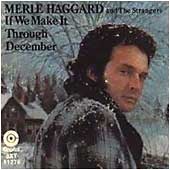
If We Make It Through December is the sixteenth studio album by American country music singer Merle Haggard and The Strangers, released in 1974. It reached number 4 on the Billboard country album charts. The title track was previously released on Haggard's Christmas release of 1973, A Christmas Present. The single spent four weeks at No. 1 on the Billboard magazine Hot Country Singles chart in December 1973 and January 1974, and cracked the Top 30 of the Billboard Hot 100. "If We Make It Through December" was the No. 2 song of the year on Billboard's Hot Country Singles 1974 year-end chart.
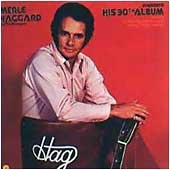
Merle Haggard Presents His 30th Album is the seventeenth studio album by American country music singer Merle Haggard and The Strangers, released in 1974. Contrary to the album's title, this was his 17th studio album; however, the number 30 included his six collaborative albums, three live albums, one 'live' gospel album, one Christmas album, and two greatest hits compilations up to that point.
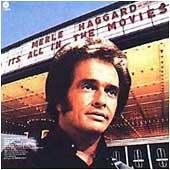
It's All in the Movies is the nineteenth studio album by American country music singer Merle Haggard and The Strangers, released in 1976.
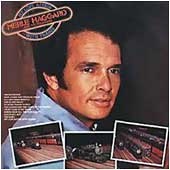
My Love Affair with Trains is the twentieth studio album by American country music singer Merle Haggard and The Strangers, released in 1976. The LP rose to number 7 on the Billboard country albums chart.

The Roots of My Raising is the twenty-first studio album by American country music singer Merle Haggard and The Strangers, released in 1976. It was his third release in 1976 and his last on the Capitol label until his return in 2004. It reached number 8 on the Billboard country albums chart.

A Working Man Can't Get Nowhere Today is a studio album by American country music singer Merle Haggard and the Strangers, released in 1977. Even though Haggard had moved to the MCA label, Capitol created this release from tracks previously recorded in 1975 and 1976.
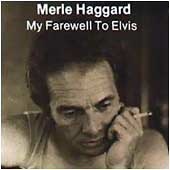
My Farewell to Elvis is the twenty-seventh studio album by American country music singer Merle Haggard, released in 1977 and his second release for MCA Records. It reached Number 6 on the Country album chart. The single "From Graceland to the Promised Land" reached number 4 on the Billboard Country Singles chart. The album is a tribute to the music of Elvis Presley, who died on August 16, 1977. He is backed by Roy Nichols, Ronnie Reno, and Mark Yeary of the Strangers.
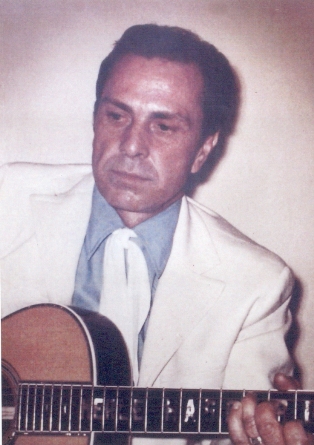
The Strangers were an American country band that formed in 1966 in Bakersfield, California. They mainly served as the backup band for singer-songwriter Merle Haggard, who named them after his first hit single "(My Friends Are Gonna Be) Strangers". In addition to serving as his backing band, members of the Strangers also produced many of Haggard's records, sang lead vocals on select tracks, and co-wrote many of Haggard's songs with him, including the No. 1 singles, "Okie From Muskogee" and "I Always Get Lucky with You".

Songs I'll Always Sing is a two-record compilation album by American country music singer and songwriter Merle Haggard, released in 1977. It reached No. 15 on the US Country Charts. The album collects many of Haggard's best known recordings during his successful run at Capitol Records, including nine of his twenty-four No. 1 hits, dating back to 1966.

Rainbow Stew Live at Anaheim Stadium is a live album by American country music artist Merle Haggard with backing by The Strangers. It was recorded in October 1980 and released in July 1981 on MCA Records.

Tribute to the Music of Bob Wills and the Texas Playboys is the 12th studio album and first tribute album by American country band Asleep at the Wheel. Recorded at studios in Austin, Texas, and Nashville, Tennessee, it was produced by the band's frontman Ray Benson and released on October 25, 1993, by Liberty Records. The collection features recordings of songs made popular by Western swing group Bob Wills and His Texas Playboys, a major influence on Asleep at the Wheel.

















